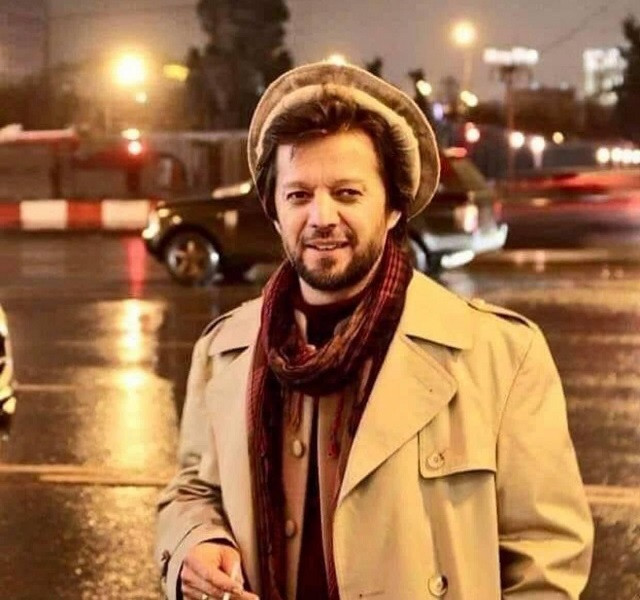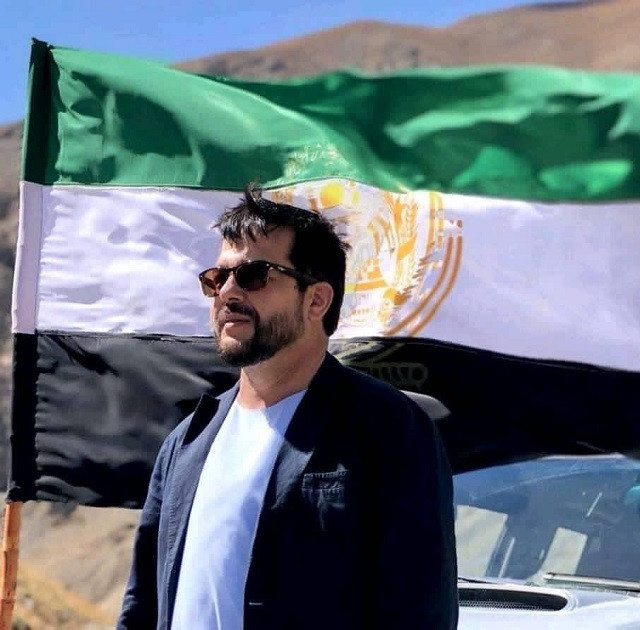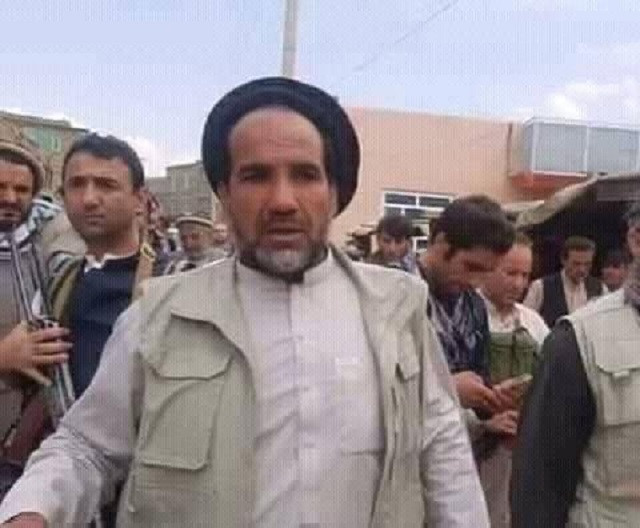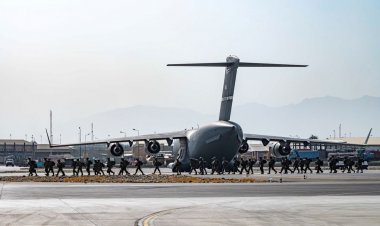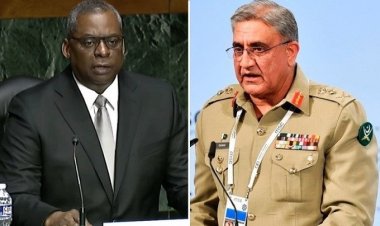Taliban claim complete control of Afghan province of Panjshir
Pictures on social media showed Taliban members standing in front of Panjshir provincial governor’s compound
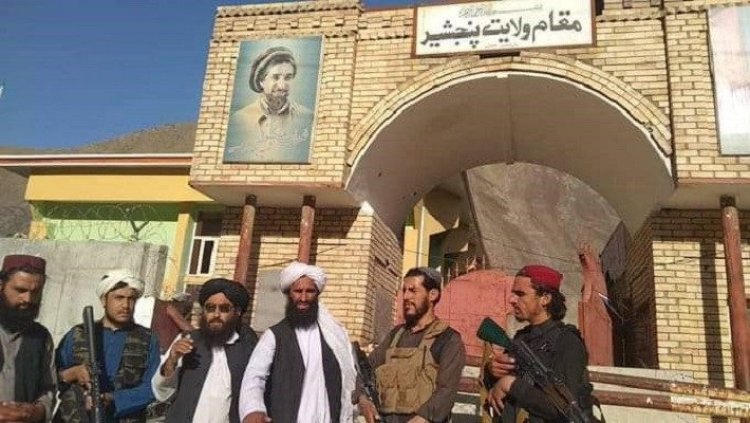
AFGHANISTAN:
The Taliban have taken complete control of Panjshir province, the last area in Afghanistan being held by resistance forces, the group's spokesman, Zabihullah Mujahid, said on Monday.
Pictures on social media showed Taliban members standing in front of the gate of the Panjshir provincial governor’s compound.
There was no immediate word from Ahmad Massoud, the leader of the opposition group resisting Taliban forces.
Mujahid informed of the victory in Panjshir in a tweet, stating that, “The last stronghold of the mercenary enemy, Panjshir province, was completely conquered.”
The Taliban also released a video of them hoisting their flag on the Governor’s house in Panjshir. In another video commander of the Badar force – that led the fight against the Panjshir rebellion – Maulvi Hidayatullah Badar could be seen assuring the local Punjshir commanders that they were forgiven, and will never be trialled or executed. “Feel free to roam around the country,” he could be heard saying in the video.
According to reports, normal Taliban fighters could not win complete victory in Panjshir hence, the Badri Bridge was called in along with suicide attackers to do the job.
It is after 43 years that the Massoud family has lost control of this remote valley.
'Country will be completely out of war'
Following the victory, Zabihullah Mujahid in a statement maintained that, “With the help of Almighty God and the support of our people, the latest efforts towards complete security in the country have also yielded results and Panjshir province has come under the complete control of the Islamic Emirate.”
He added that some of the insurgents in the province were defeated while the rest fled, “freeing the oppressed and honorable people of Panjshir,” he said.
Mujahid said that, “We assure the people of Panjshir Sharif that they will not be discriminated against in any way, they are all our brothers; we will serve together for one country and one goal.”
The spokesperson stated that, “With this victory and last effort, the rest of the country will be completely out of the war and our country will have a peaceful and prosperous life in an atmosphere of freedom, independence and prosperity. God willing.”
A day ago, Massoud had welcomed proposals from religious scholars for a negotiated settlement to end the fighting, Reuters reported.
Massoud, head of the National Resistance Front of Afghanistan (NRFA), made the announcement on the group's Facebook page. Earlier, Taliban forces said they had fought their way into the provincial capital of Panjshir after securing the surrounding districts.
The Taliban took control of the rest of Afghanistan three weeks ago, taking power in Kabul on Aug. 15 after the Western-backed government collapsed and President Ashraf Ghani fled the country.
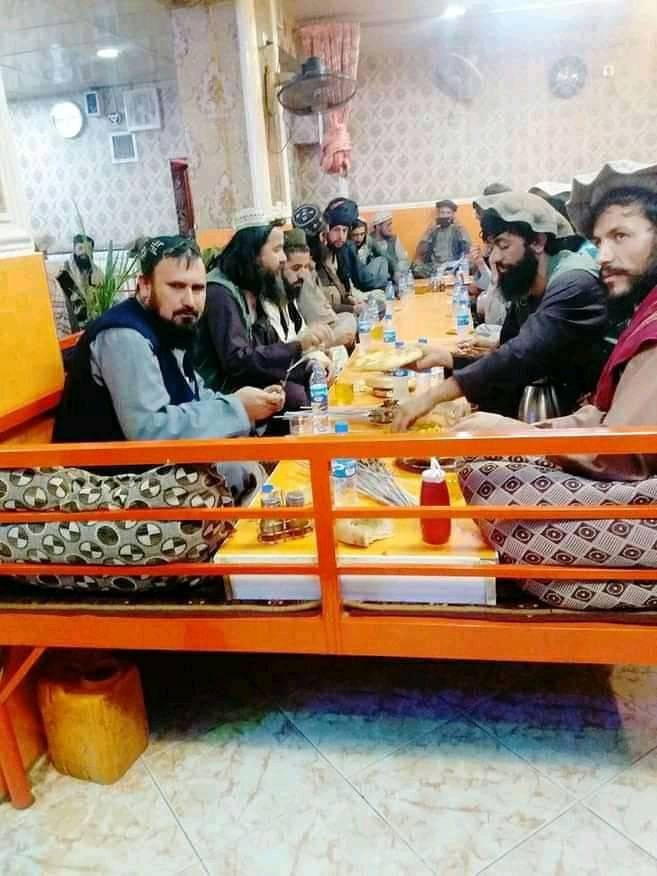
Maulvi Fasihuddin, the Taliban commander who led the Panjshir campaign, is eating breakfast after the fall of Panjshir.
"The NRF in principle agree to solve the current problems and put an immediate end to the fighting and continue negotiations," Massoud said in the Facebook post.
"To reach a lasting peace, the NRF is ready to stop fighting on condition that Taliban also stop their attacks and military movements on Panjshir and Andarab," he said, referring to a district in the neighbouring province of Baghlan.
A large gathering of all sides with the Ulema council of religious scholars could then be held, he said.
Read Taliban capture 'four districts of Panjshir'
Earlier, Afghan media outlets reported that religious scholars had called on the Taliban to accept a negotiated settlement to end the fighting in Panjshir.
There was no immediate response from the Taliban.
On Sunday, the NRFA also confirmed that its main spokesman, Fahim Dashti, had been killed during the day. Dashti had survived the suicide attack that killed Massoud's father, Ahmad Shah Massoud, on Sept. 9, 2001, just days before the Sept. 11 attacks on the United States.
He had been one of the main sources of updates from the area as the Taliban pressed in on opposition forces, issuing a defiant series of statements on Twitter, vowing that resistance would continue.
Massoud, who leads a force made up of remnants of regular Afghan army and special forces units as well as local militia fighters, called for a negotiated settlement with the Taliban before the fighting broke out around a week ago.
Taliban spokesman Bilal Karimi said earlier on Sunday that their forces had made it into the provincial capital, Bazarak, and had captured large quantities of weapons and ammunition.
Slain Panjshir commanders
1. Fahim Dashti, spokesman for the Northern Resistance Front in Panjshir, was a close associate of Ahmad Shah Massoud (lion of Panjshir). He was seriously injured in a suicide attack that killed Ahmad Shah Massoud in 2001.
Dashti was associated with literature and media. During the Karzai government, he ran a newspaper from Kabul and hosted a TV programme. He lost his job and his newspaper was shut down for reporting on the corruption of Hamid Karzai's government. He was the mentor of Ahmed Shah Masood's son Ahmed Masood and also guided him in the political arena.
2. Saleh Muhammad Raigistani, the chief war strategist of Panjshir, was also among those killed. He joined the armed opposition, or mujahideen, rather than be conscripted into the Afghan army, and in 1997 started as an intelligence officer with Ahmad Shah Massoud's forces.
3. Muneeb Ameeri, the Panjshir commander who led the current fight against the Taliban, was also killed.
4. General Dawood, a top commander of the Panjshir resistance movement, was also killed. He was a nephew of Ahmed Shah Massoud and deputy of his son Ahmed Massoud.
Rugged Valley
Panjshir, a rugged mountain valley still littered with the wreckage of Soviet tanks destroyed during the long war in the 1980s to oust the Soviet presence, has proved very difficult to overcome in the past.
Under Ahmad Shah Massoud, the region long resisted control by both the invading Soviet army and by the Taliban government that previously ruled from 1996 to 2001.
But that effort was helped by supply routes leading north to the border, which were closed off by the Taliban's sweeping victory last month.
The Panjshir fighting has been the most prominent example of resistance to the Taliban. But small individual protests for women's rights or in defence of the green, red and black flag of Afghanistan have also been held in different cities.

 Admin
Admin 